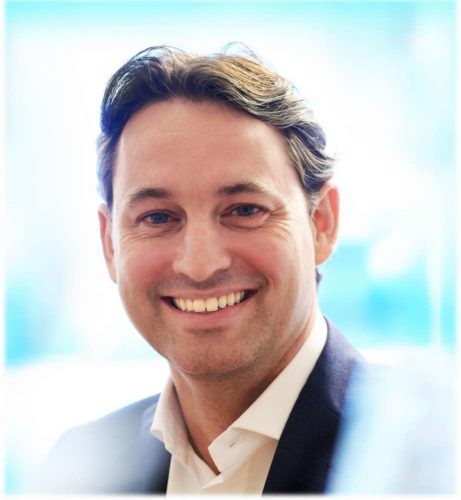Fintech Evolution
Published by Gbaf News
Posted on October 12, 2018
9 min readLast updated: January 21, 2026

Published by Gbaf News
Posted on October 12, 2018
9 min readLast updated: January 21, 2026

How has fintech transformed the financial sector?
Martijn de Wever: Fintech companies have excelled in providing a better customer experience with less use of human capital.
Financial firms continue to struggle with information overload and too many legacy systems that don’t communicate with each other – generating a form of ‘data spaghetti’. In applying technology to capitalise on the ton of data that has been captured, Fintech companies are adding value to data that the sector has not been utilising. This use of complex data together with more transparent and user friendly experiences is driving change in the sector as a whole.
As a pioneering fintech entrepreneur, what are the key elements of a successful product?
Martijn de Wever: A great product excels in user experience by putting the user at the centre. Distillation of the actual problem you are looking to solve is essential, and simplicity of information is key. Too many people take the current status quo as a starting point, which is wrong. You should free yourself from any preconceptions and just try to find the best solution for a problem – and if that is close to the current reality, then that is great. If not, you reshape the reality but never compromise on usability.

Martijn de Wever
How do your products achieve stand out in the increasingly crowded fintech market?
Martijn de Wever:
Design advantage
Floww is a unique combination of finance, technology and design. Too many fintech companies forget that user experience and design should be an integral part of their business. The touch and feel of the product and the insight that the user can gain from the system, is completely unique and unprecedented. The clean and clear interface and smooth interaction supports the whole process and experience.
Technology–
Floww has been built in Microsoft Azure, maximizing usage of the Microsoft stack and more. It’s multi-tenant design makes it possible to pave the way for a new infrastructure of tomorrow whereby financial institutions can more freely communicate with their clients as well as collaborate with other institutions. The system capitalises on years of R&D and makes use of pieces of technology that are lightyears ahead of anything currently out there. To see the system come to life in the browser (meaning no integration for clients) is an exhilarating experience.
Functionality–
Floww is not just a system for one user – it is a whole eco-system straight out of the box. Institutions can now manage their assets, clients and employees all within one system in one unique beautifully designed language. Business intelligence is naturally a product of just working with the system and is no longer left to the demise of back-office functions within organisations. Managers gain instant realtime insight in the assets under management. The front-office can slice and dice their clients and understand the constitution of the client wallet. Investors finally get to speak the same language as their financial institution. Floww makes complex matter understandable, and lets the users play with data in real-time and with the utmost ease.
What do you look for in design and development partners?
Martijn de Wever: A pure creative collaboration was needed with a team that has experience working with interfaces of tomorrow. We strive to work with the best in class and have thoroughly enjoyed bringing talent of different disciplines into one room. An eye for detail and no compromises on user experience, stood at the foundation of the company. When you are doing something truly unique it forces the technology team to learn on their feet and built controls and solutions from the ground-up. There are no best practices when you go first – it is a continuous adaptation and tests the growth mindsets of every team member involved. I believe organisations extend further than the boundaries of a defined entity and design and development partners are part of the same journey.
What is the principle design consideration that underpin a good experience?
Lee Fasciani: The fundamental principle of design is communication. By understanding both the ambition of the product and the target audience (end users), we start to formulate a design solution that puts the user at the heart of the product. Our work will always be validated by user experience and their comprehension of the product. And, as we are breaking new ground, inventing new ways of visualising and manipulating data, it’s critical to keep the user front of mind.
How do you balance the need for simplicity with the inherent complexity of data sets?
Lee Fasciani: We’re designing the product to be used by a wide variety of people, from those with high technical knowledge to those with little exposure to technology in this sector. With this in mind, our approach to representing data is underpinned by common visual metaphors, line graphs, bar charts, colour, scale comparison, etc., to ground the experience in some sense of familiarity. The product then comes to life in how the user can manipulate these visuals in a myriad of ways including time and 3D space to give a unique sense of control. When initially briefed by Martijn he really wanted to empower the user with the technology and we’ve always used that as one of the guiding principles of the user experience. One key aspect of the work we’ve done is to allow the user to focus on any particular aspect of the data then give them the ability to discover more information through an additional interaction, essentially layering the complexity. This creates a system where the user can discover more information as and when they wish.
In summary, these digital platforms are great enablers because they allow for data to be physically manipulated, creating a real sense of tangibility to the information and allows the optimal level of complexity to surface as and when the user needs it.
How has the fintech sector changed since you first started working in this field

Lee Fasciani
Lee Fasciani: The first product we worked on was Force Over Mass, an investment portal that launched in 2016. It brought an easy and sophisticated visual representation of financial data to private investors on a mobile first platform that was unprecedented in financial sector products at the time.
Today, fintech product are proliferating and specialising, adding real value to both private and professional users. And there are now a lot more financial services that are providing more user friendly products. In that sense, the effort to productise the personal banking and investment process has led to improvements in user experience design across the sector.
Is the financial sector embracing and adopting fintech?
Martijn de Wever: Yes there is a very strong awareness that the world of finance has to adapt or risk becoming irrelevant. The larger organisations become the more counter-intuitive and innovation-averse they become, which is logical. As organisations grow, rules need to be put in place to keep control over the growing number of complexity, processes and people. Innovation – de facto – means breaking the status quo which is exactly what people in organisations are incentivised and trained NOT to do. The surge in fintech companies is putting the problem at the top of the agenda. Dealing with legacy systems, is however slowing that migration to the new world of excellent user experience. This is the reason that we created a system that can fit on-top of the existing infrastructure if they choose to – helping the organisation with the slow transformation and re-education of their workforce.
What are the trends / technologies driving the sector?
Martijn de Wever: Customers are expecting the same experience that they are used to in other aspects of their life. Combining this with a way of capitalising data that is untapped and complying to the latest regulation, gives Floww a truly unique position in the market and we think we are spot-on with the trend. Having set up a VC firm before setting up Floww, I would be more than willing to go into the latest trends in detail but I will leave that perhaps for another time.
Lee Fasciani: From a design perspective, the big trend is really about access to data in general. Because the average person needs clarity in a more digestible and understandable way, visual interfaces have become increasingly popular. We see a proliferation of applications and platforms that help to tell the story of performance, but not necessarily with any real level of depth.
Underneath all that, data security, trust, transparency and integrity are paramount for the end user when deciding on platforms or products. For businesses, technology can facilitate compliance and increase efficiencies.
What’s the biggest challenge to working with entrepreneurs in the tech sector?
Lee Fasciani: It’s about pushing the limits of what’s achievable in terms of optimising the interplay between technology, experience and design. All the entrepreneurs we work with share a common vision; they want to create a product that disrupts sector conventions and pushes the limits of what’s possible. As creative thinkers and product designers it’s always exciting to think up new, future-facing concepts for a product but the real challenge is being able to align these ideas with the ambition of the client, the available technology and the user at the centre of the experience. Our designs often mean developers have to come up with new technical solutions. so everyone needs to be on board from the start.
Martijn de Wever: CEO and founder, Floww
With 20 years of experience in trading and risk managing Financial products and derivatives, Martijn’s experience at several global banks allowed him to recognise a key gap in the market. A technologist, tech investor and serial entrepreneur with a proven track record in successfully leading and growing companies after founding innovative Venture Capital firm Force Over Mass in 2013.
A new and distinct venture and solution, Floww is Martijn’s vision for a streamlined modern financial ecosystem.
Lee Fasciani: Creative Director and founder, Territory Projects
Leading a team at the junction of innovation, technology and brand, Lee’s expertise lies in marrying future interface concepts with real-world technologies to create rich human-centred digital experiences. With over 17 years of experience, Territory Projects’ clients come from FinTech, consumer technology, health and wellness products, travel, entertainment, and property development.
Explore more articles in the Interviews category











